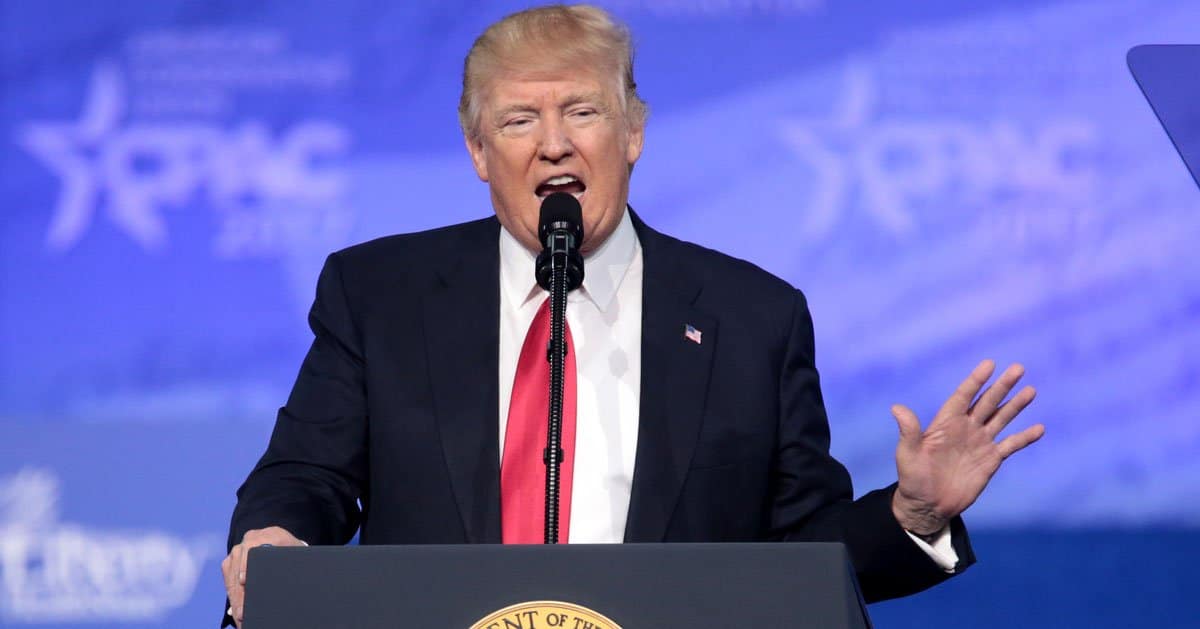







A recent poll captures the sharp partisan divide among Americans on whether former President Donald Trump and Hunter Biden should face imprisonment following their respective convictions.
Fox News reported that the AP-NORC Center for Public Affairs Research conducted the poll, gathering opinions from 1,088 U.S. adults between June 20-24. This research aimed to gauge public sentiment towards the legal outcomes for two high-profile figures: Donald Trump and Hunter Biden.
In the survey, nearly half of the respondents, 48%, voiced that Trump should be imprisoned following his conviction on 34 counts of falsifying business records in New York. Conversely, a slight majority, 50%, opposed this view.
The partisan split is significant, with 80% of Democrats advocating for Trump's imprisonment, compared to a mere 10% of Republicans.
Independents appear almost evenly divided, with 49% supporting imprisonment and 46% against.
Initially scheduled before the Republican National Convention, Trump's sentencing has been delayed to no earlier than September. This postponement adds another layer of complexity to the public's perception of the legal proceedings.
Contrasting with the division on Trump, the sentiment regarding Hunter Biden's case is notably less polarized.
The younger Biden, convicted on three felony charges in federal court for lying about drug use when purchasing a gun, has seen a clearer consensus for his conviction.
Approximately 60% of the surveyed population approves of the conviction. This majority spans across political lines, with about 60% of Democrats and 70% of Republicans in agreement.
The poll also indicates a strong inclination towards prison time for Hunter Biden, with 60% of respondents supporting this outcome. Here, too, Republicans are slightly more likely than Democrats to endorse incarceration.
The AP-NORC survey's findings illustrate how deeply entrenched partisan affiliations can influence public opinion on legal matters.
The stark differences in perspectives on Trump contrasted with the more uniform views on Hunter Biden highlight the complexity of public sentiment in politically charged legal cases.
This polarization is especially evident considering the broad range of opinions on whether high-profile figures should face imprisonment as a consequence of their criminal convictions.
The results of such polls not only reflect current public sentiment but also contribute to the broader discourse about justice and political bias in the United States.
As these legal dramas unfold, they serve as a litmus test for the American justice system's perception among the public. The differences in opinion regarding Trump and Hunter Biden offer insights into how justice is perceived differently depending on the individual's political standing and the nature of their offenses.
While the majority consensus on Hunter Biden suggests possible fatigue with legal leniency for public figures, the divided opinion on Trump underscores the enduring partisan rifts that shape American politics and its justice system.
Understanding these dynamics is crucial for policymakers, legal professionals, and the media as they navigate the complexities of high-profile legal cases and their ramifications on public trust and legal fairness.
The implications of these findings extend beyond immediate legal outcomes.
They signify deeper societal divisions and the challenges these pose to the coherence of legal and political narratives in the U.S.
As the legal cases against Trump and Hunter Biden advance, they will likely continue to be a bellwether for public trust in legal institutions and the political process.
The ongoing public discourse around these cases may influence future legal proceedings and the political landscape, especially as the nation heads towards significant political events like national conventions and elections.
In conclusion, the AP-NORC poll highlights a critical juncture in American public opinion.
While deeply divided over Trump's fate, there is a notable convergence in views regarding Hunter Biden. This dichotomy not only underscores the partisan nature of American politics but also reflects a complex interplay of legal judgment and political allegiance.
As the U.S. grapples with these divisive issues, the outcomes of such public opinion polls will continue to play a pivotal role in shaping the narrative around justice and accountability for public figures.



